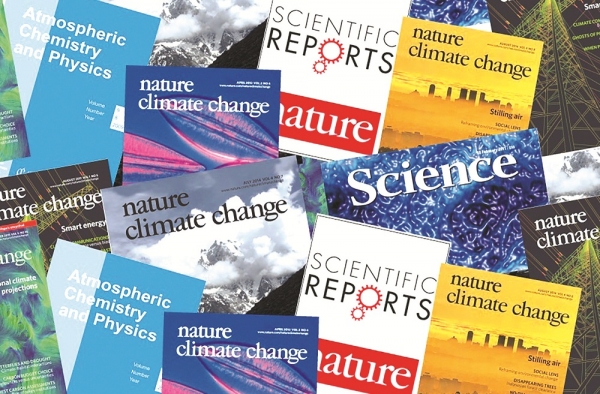INTERNATIONAL PAPERS
A New Decision-Making Model Based on the Made in Vietnam Finest Management Philosophy
In the context of uncertainty and the dynamism of business environment, optimizing decisions becomes a vital factor for any company. In Vietnam, along with the opportunities that global competition brings, deeper integration into the world economy requires Vietnamese enterprises to make decisions quickly, accurately and more effectively.
In the context of uncertainty and the dynamism of business environment, optimizing decisions becomes a vital factor for any company. In Vietnam, along with the opportunities that global competition brings, deeper integration into the world economy requires Vietnamese enterprises to make decisions quickly, accurately and more effectively. However, management at most local enterprises and organizations is now mainly based on qualitative analysis and management decisions are often made on the basis of managers’ experiences, relying on the results of surveys, interviews or research based on rather old data. Vietnamese enterprises lack a good-quality support model for their management decisions. In Vietnam, research on decision-making has been rather limited, with no published official book/documents related to decision-making models. Besides, due to differences in organizational cultures, human resource characteristics, finances, and the development of science and technologies, it is difficult for Vietnamese enterprises to apply effectively optimal decision-making models which have been studied and applied successfully in the practice of enterprises around the world. It is necessary to carry out research in order to develop a suitable decision-making model specifically for Vietnamese enterprises.
To fulfill the aim of this research, the following objectives were formulated: (1) To review the conventional decision-making model applied at Vietnamese enterprises; (2) To investigate the main problems with decision-making these companies are facing; (3) To develop a new decision-making model based on the Made in Vietnam Finest Management for Vietnamese enterprises. The model was built from the practical point of view (observation, surveys, in-depth interviews, case studies) to find out the methods of optimal thinking in order to analyze the current situation, construction, development, as well as verification of the optimal models.
The paper reviewed the conventional decision-making model applied in Vietnamese enterprises. The conventional decision making included three main steps: Collecting information (based on experience, investigation, surveys), making decision and implementing in reality. There was no method to predict the efficiency of decisions before implementing in reality. The conventional model led to low efficiency when the success rate of making decision in enterprises is only 57%. After analyzing the causes of the problem such as ineffective business decision-making by the 5-whys method and re-affirming the accuracy of the cause with business leaders in the second in-depth interview, the author has found the following main causes:
- Decision makers with lack of “Tam the”;
- People who are responsible for decision making within the business do not have the same decision making thinking;
- Lack of optimal decision making model that applies uniformly throughout the enterprise;
- Lack of supportive methods to evaluate the effectiveness of the decision before putting it into practice.
Base on the research results, the author proposed decision making model includes three main parts:
- AS-IS model: Imitation decision context, input in decision making process.
- The Made in Vietnam Finest Management Philosophy: foundation thinking in building the management decision making alternatives.
- TO-BE model: Evaluation alternative, output in decision making process.
AS-IS model is established by a set of essential variables corresponding to significant entities in the decision context, divided into 5 groups (“Tam the”, Man, Method, Machine, Material) and follows comprehensive criteria (Safety, Quality, Cost, Delivery, Environment). After the AS-IS model in each project has been built, based on finest thinking, decision-makers will identify existing tangible and intangible wastes in the AS-IS model, potential wastes that cause the failure of achieving the initial target if applying that decision in practice. Then, the parties involved in the decision will build alternatives to minimize these wastes to ensure that they will achieve the initial target when the decision is made. TO-BE model is used to describe a future desired situation when to implement a specific alternative in reality. According to the characteristics of the decision, a specific method used to evaluate alternative efficiency is different. Based on the result of the evaluation criteria set from the beginning, the before-after comparison was conducted among managers who were involved the in process. Then, managers will discuss to choose the best alternative.
The proposed model based on the Made in Viet Nam Finest Management Philosophy has been recognized as practical tool for Vietnamese enterprises in decision-making. The model has recently been applied in both the manufacturing and service sectors. In future research, this model can be extended to the government sector. The model not only can be used for Vietnamese enterprises but can also be extended for enterprises in both developing and developed countries.
Originated from
Nguyen, M. (2018). A New Decision Making Model Based on the Made in
Vietnam Finest Management Philosophy. Economics and Sociology, 11(1), 44-60.
doi:10.14254/2071-789X.2018/11-1/3
https://www.economics-sociology.eu/files/07_03_490_Nguyen.pdf
AUTHOR FROM VNU UNIVERSITY OF ECONOMICS AND BUSINESS
Ass. Prof. PhD. Nguyen Dang Minh is currently the Head of a strong research group at VNU on Made in Vietnam Finest Management, Head of the Department of Technology Management at the School of Business Administration, VNU University of Economics and Business, and also Chairman of the Consulting Council, GKM Finest Management Institute, GKM Vietnam Company Limited. Ass. Prof. PhD. Nguyen Dang Minh is the author of Made in Vietnam Finest Management (Quản trị Tinh gọn Made in Vietnam) including: a philosophy of the Made in Vietnam Finest Management, the Made in Vietnam Finest Management model, the Made in Vietnam Decision Making Model based on the Made in Vietnam Finest Management, methods and tools of Made in Vietnam Finest Management... His works have been published in prestigious international scientific journals, international scientific conferences at home and abroad, practically applied at domestic and international businesses/organizations.
OTHERS
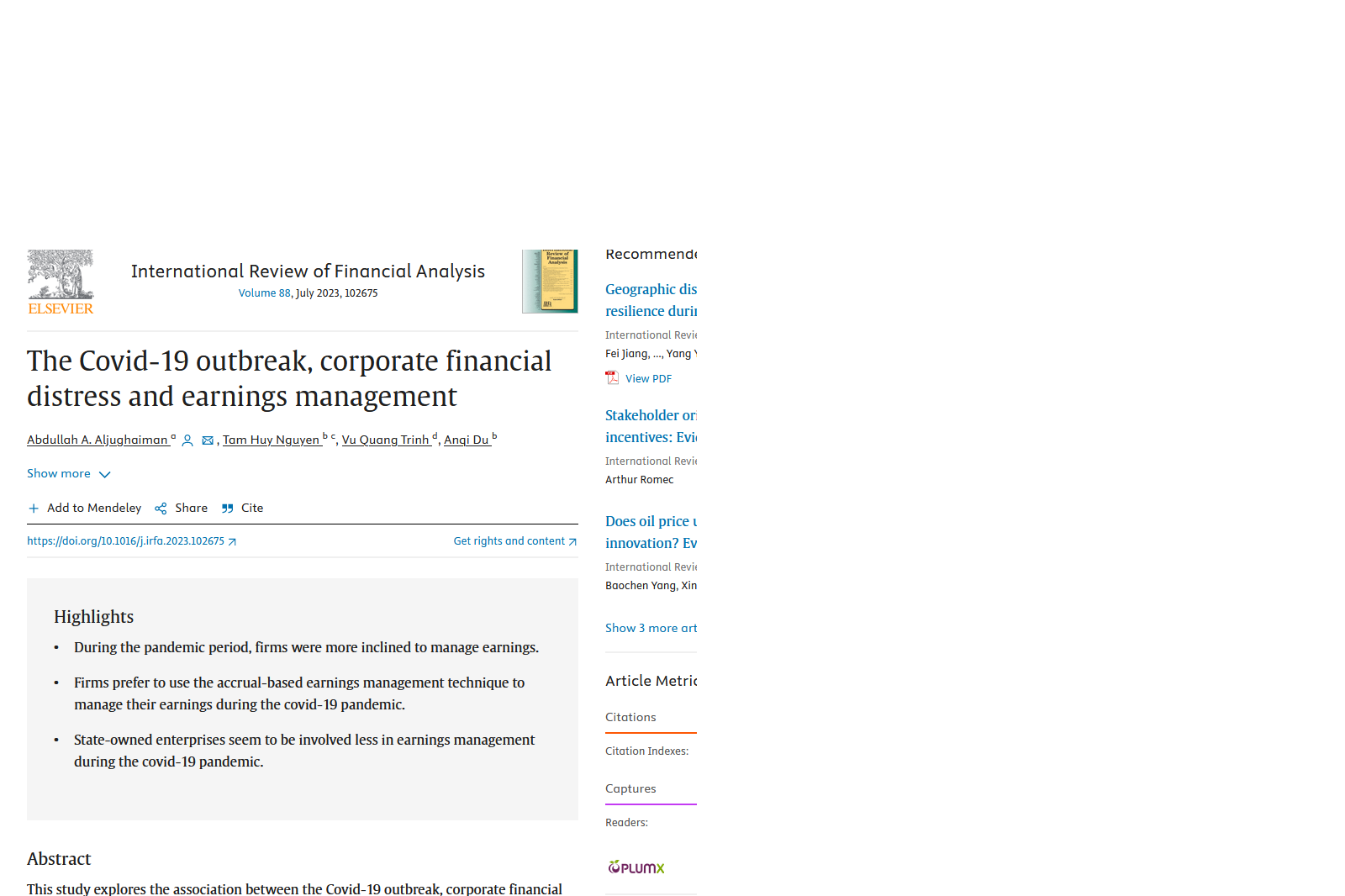
The COVID-19 Outbreak, Corporate Financial Distress and Earnings Management
This study explores the association between the COVID-19 outbreak, corporate financial distress and earnings management practices in China. We investigate ...
More details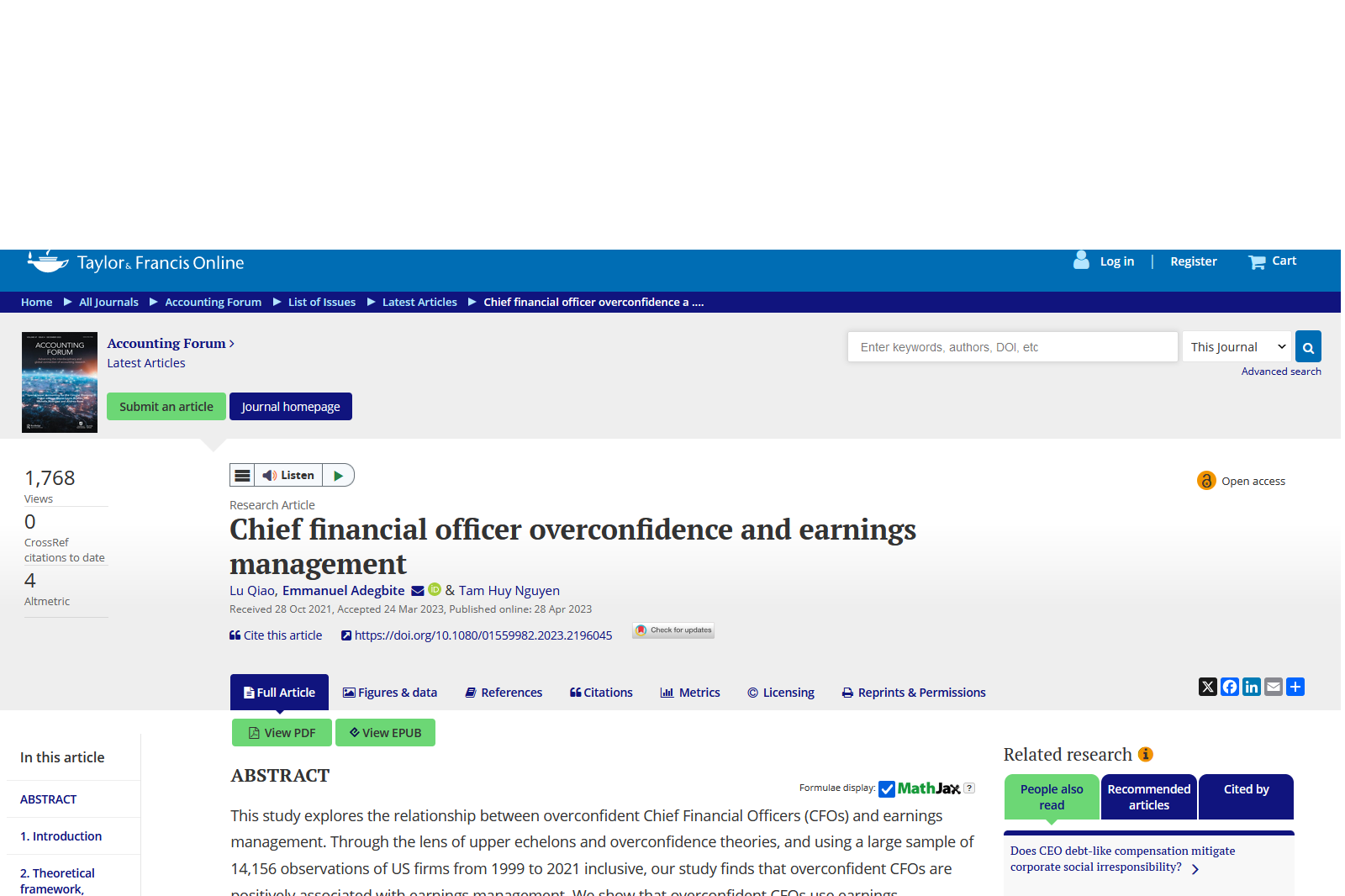
Chief Financial Officer Overconfidence and Earnings Management
This study explores the relationship between overconfident Chief Financial Officers (CFOs) and earnings management. Through the lens of upper echelons ...
More details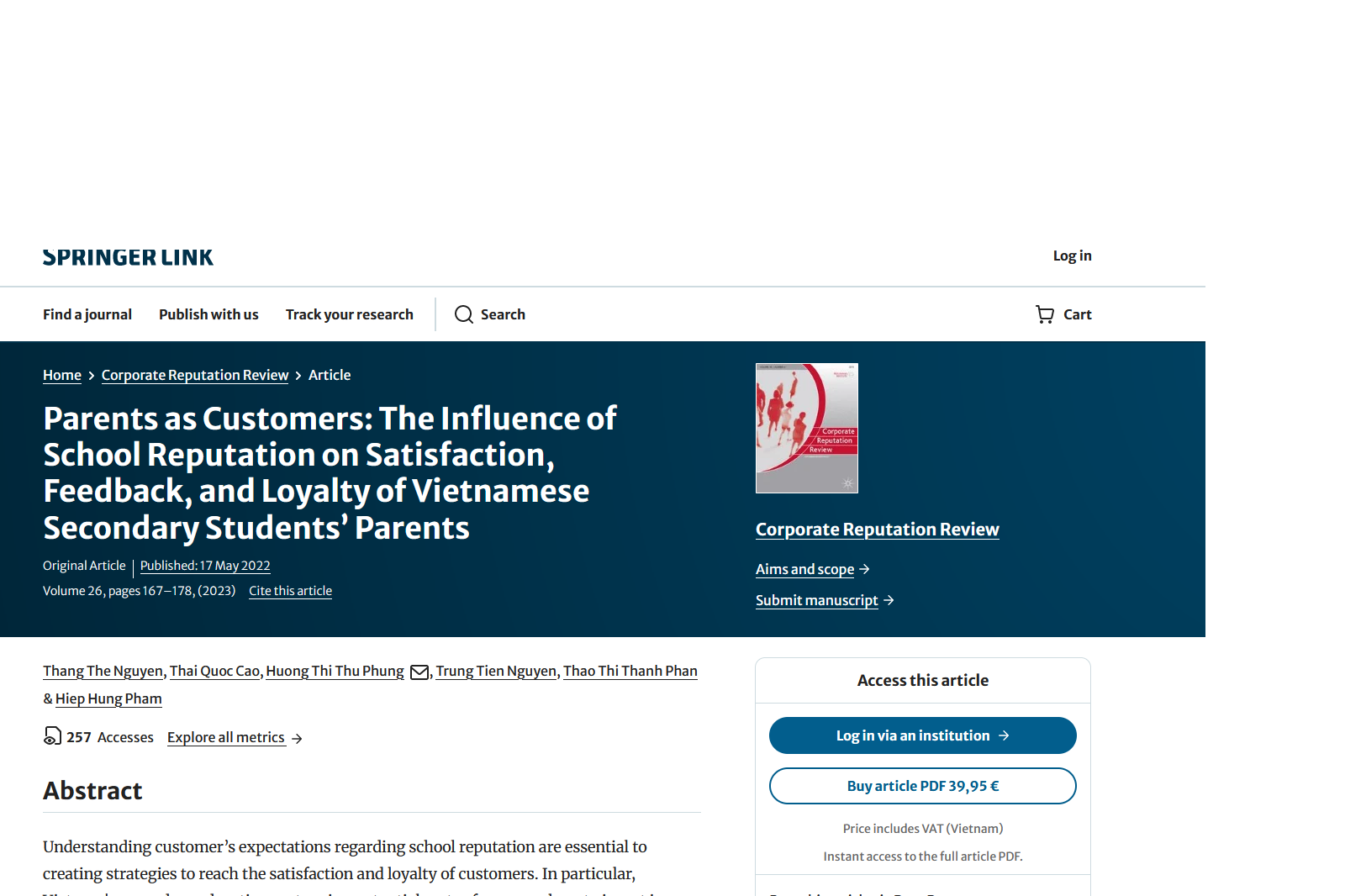
Parents as Customers: The Influence of School Reputation on Satisfaction, Feedback, and Loyalty of Vietnamese Secondary Students’ Parents
Understanding customer’s expectations regarding school reputation are essential to creating strategies to reach the satisfaction and loyalty of customers. ...
More details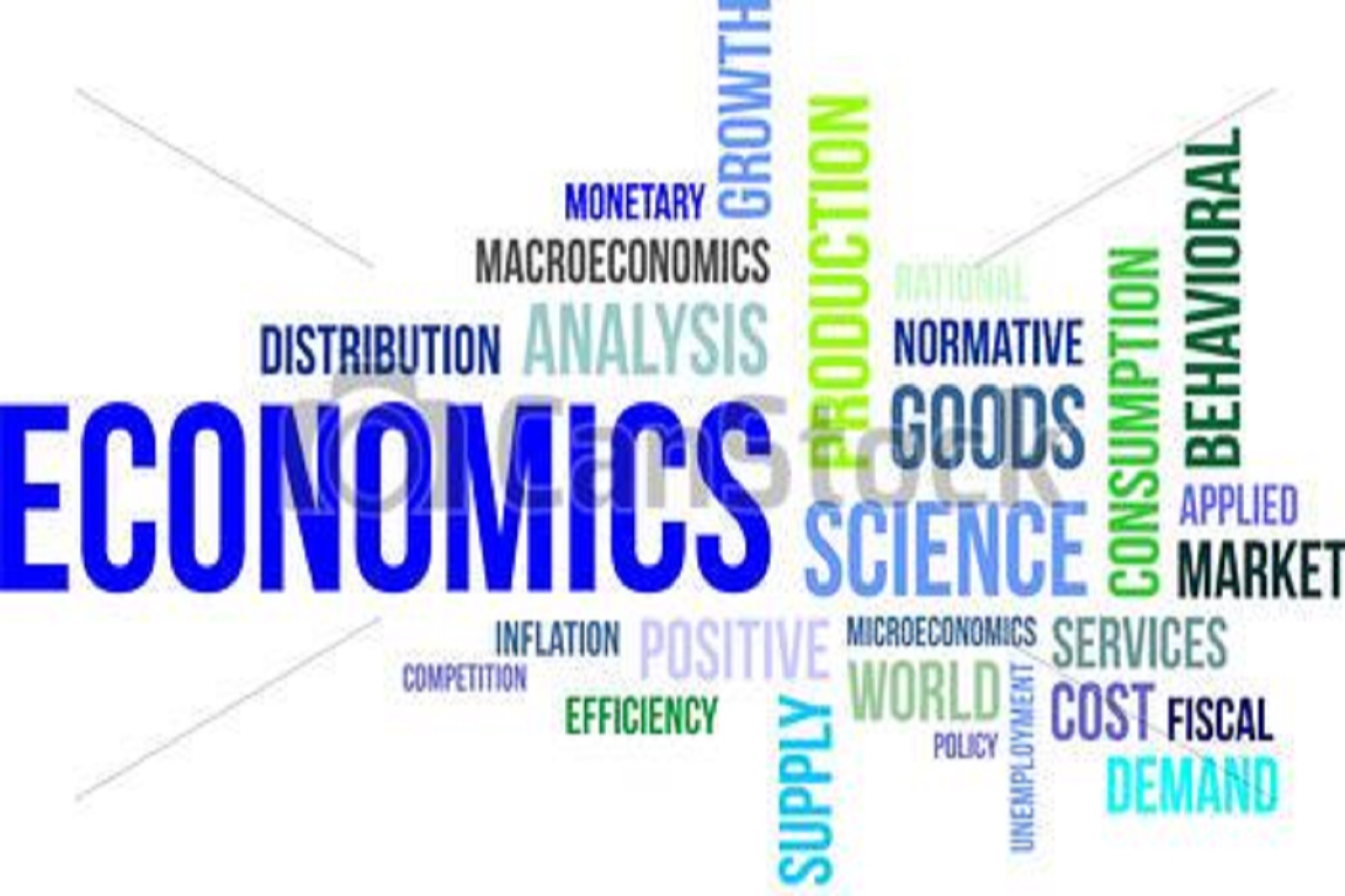
UEB's Articles Published in International Journals in 2023
We are pleased to introduce the list of articles published in international journals by UEB’s staff and lecturers in 2023 (September).
More details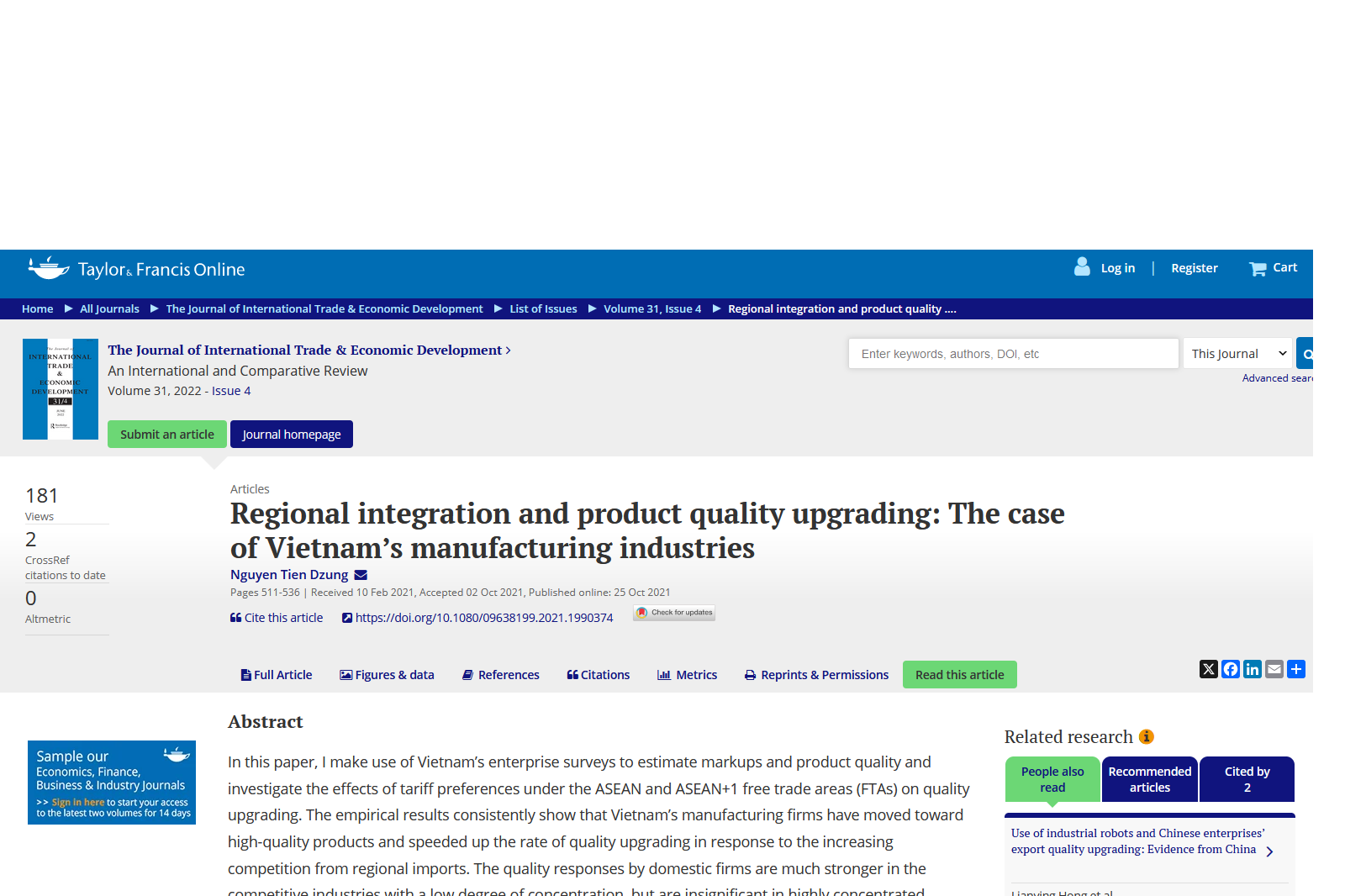
Regional Integration and Product Quality Upgrading: The Case of Vietnam Manufacturing Industries
Trade and competition have been extensively studied in Vietnam and abroad. There has been a large and increasing number of theoretical and empirical studies ...
More details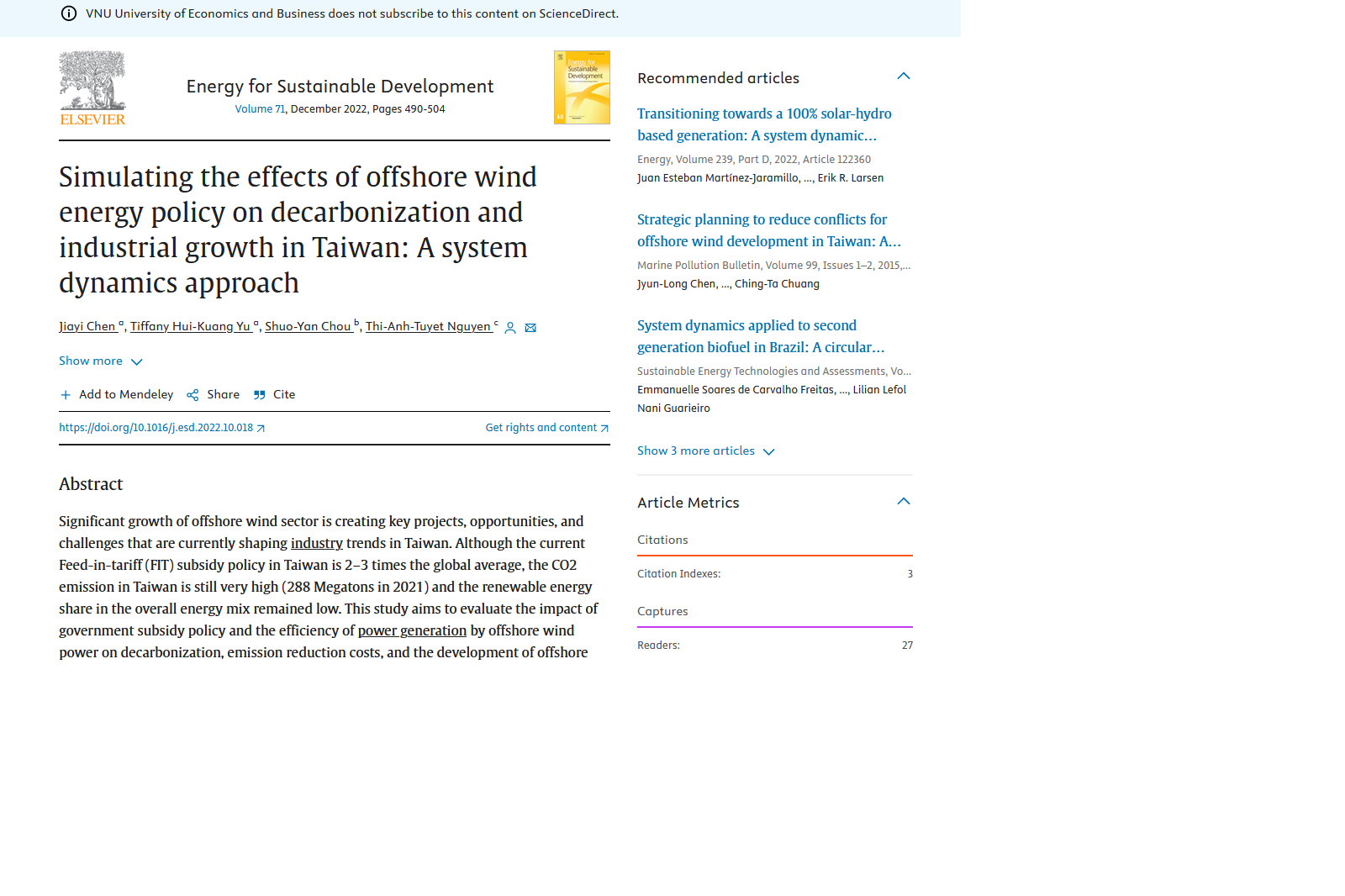
Managing Bank Performance under COVID-19: A Novel Inverse DEA Efficiency Approach
The evolution of the COVID-19 pandemic is highly unpredictable; however, its impacts are limited to neither a single sector nor a single country. This ...
More details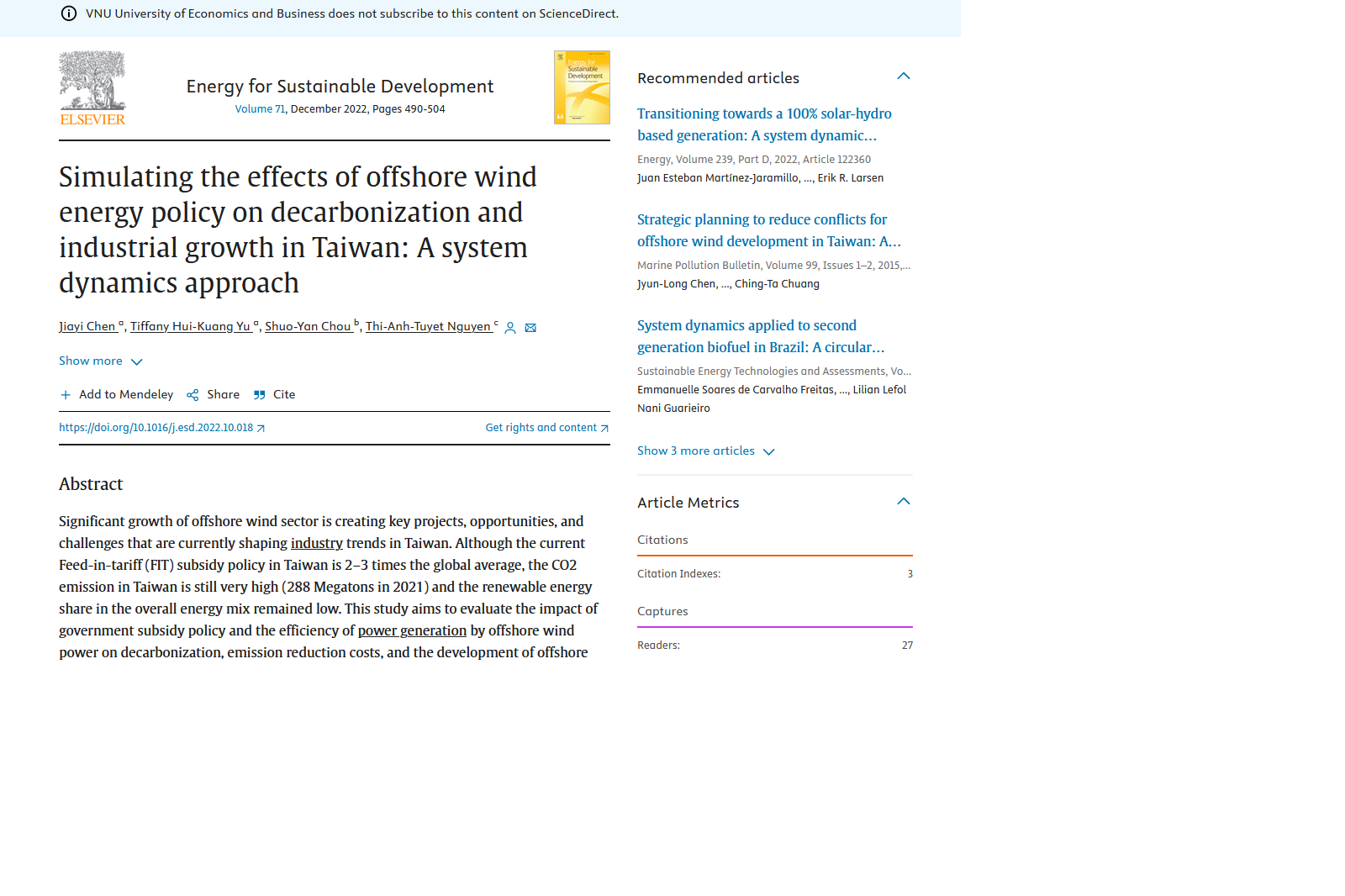
Simulating the Effects of Offshore Wind Energy Policy on Decarbonization and Industrial Growth in Taiwan: A System Dynamics Approach
Significant growth of the offshore wind sector is creating key projects, opportunities, and challenges that are currently shaping industry trends. Countries ...
More details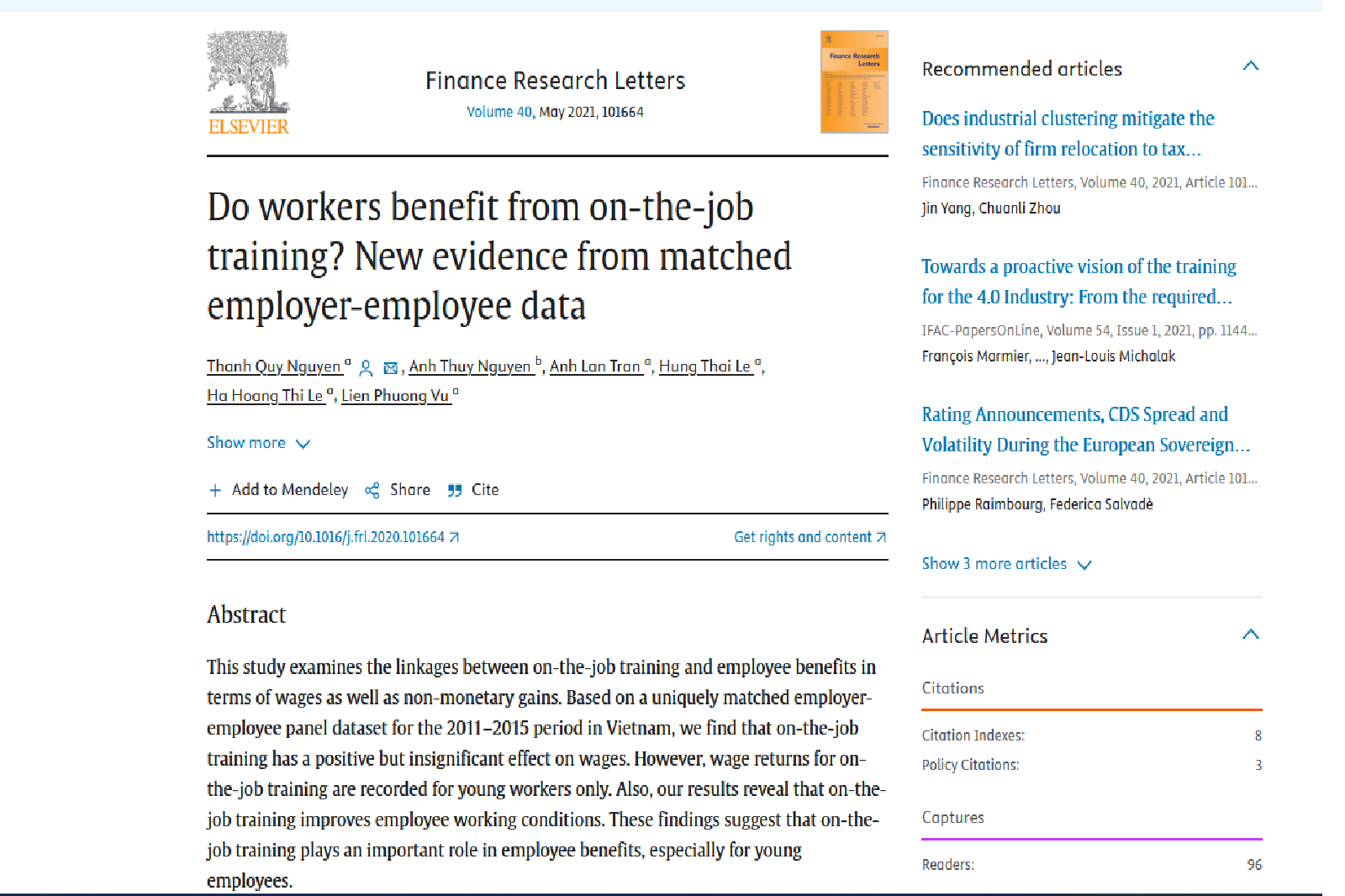
Do Workers Benefit from On-the-Job Training? New Evidence from Matched Employer-Employee Data
Although there has been extensive research on the benefits of education, few studies have examined how on-the-job training impacts wages. The research ...
More details
